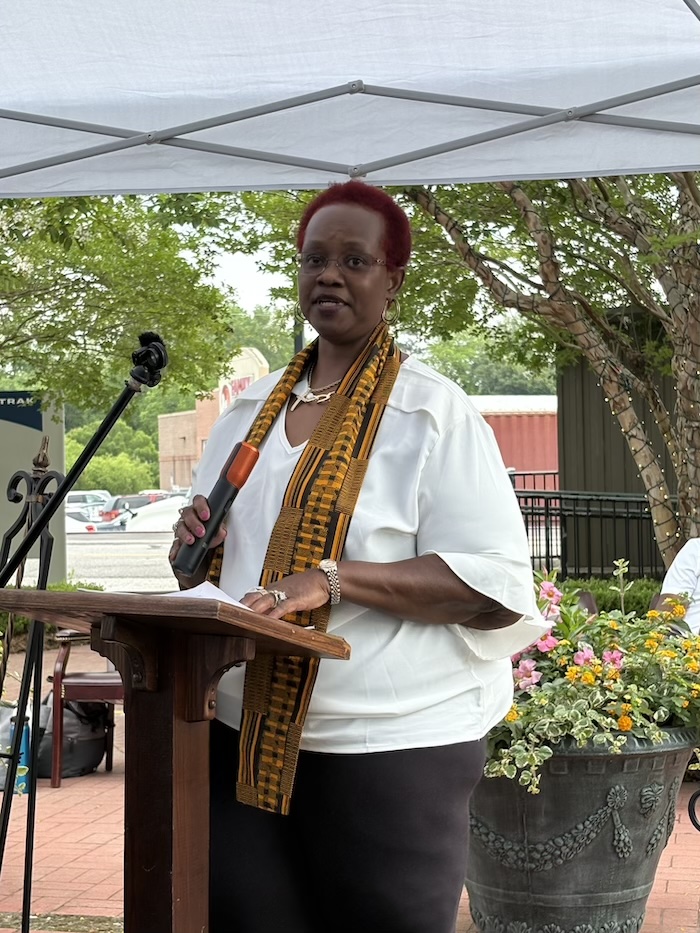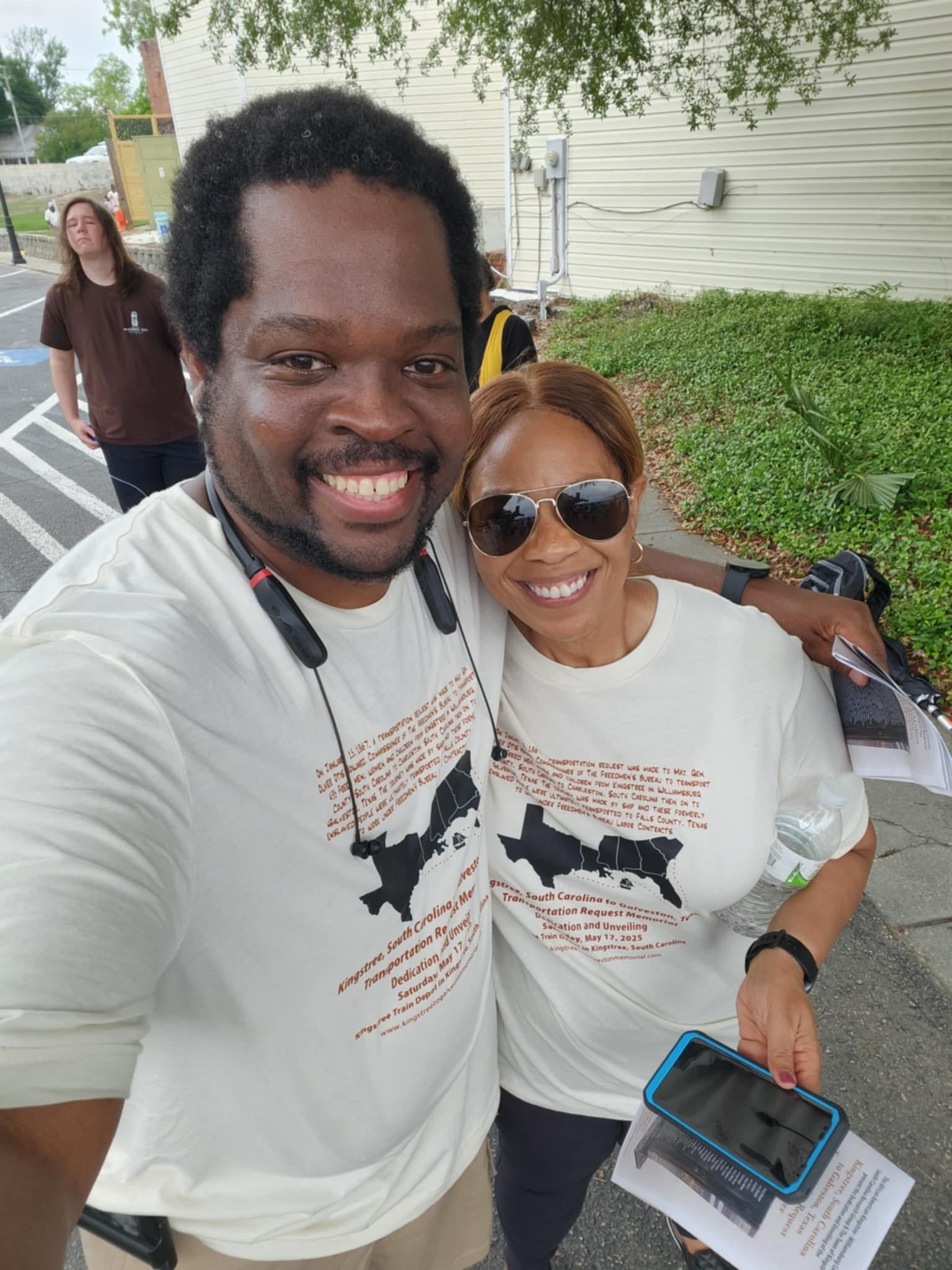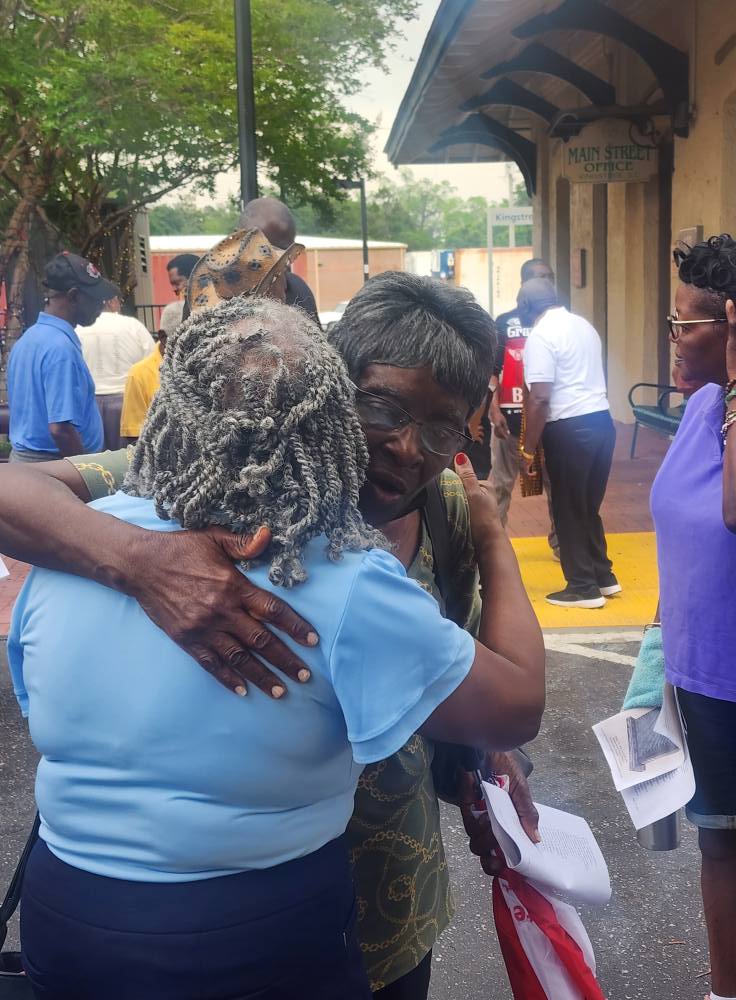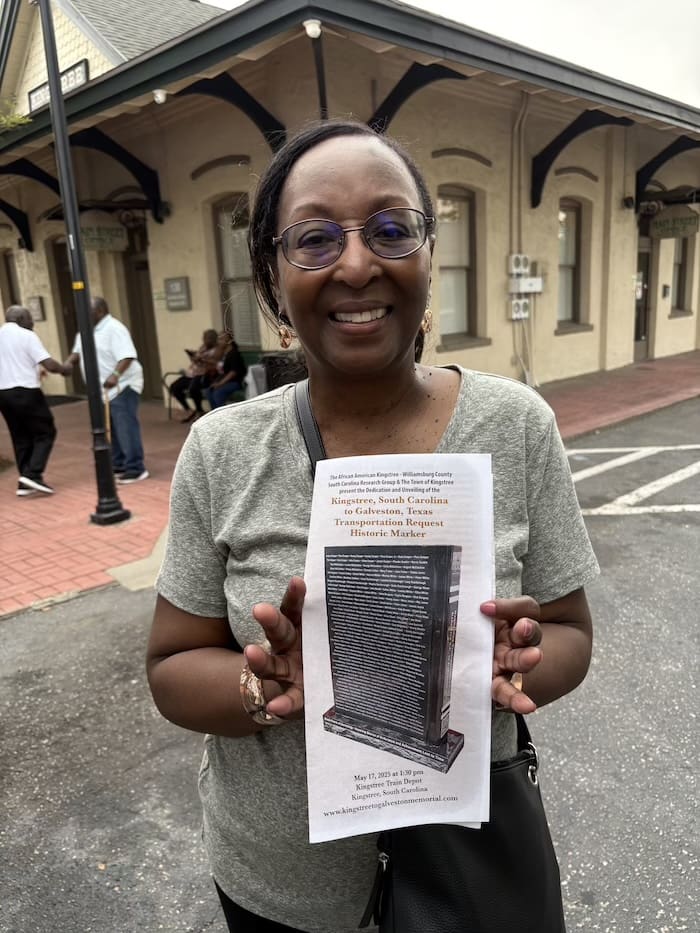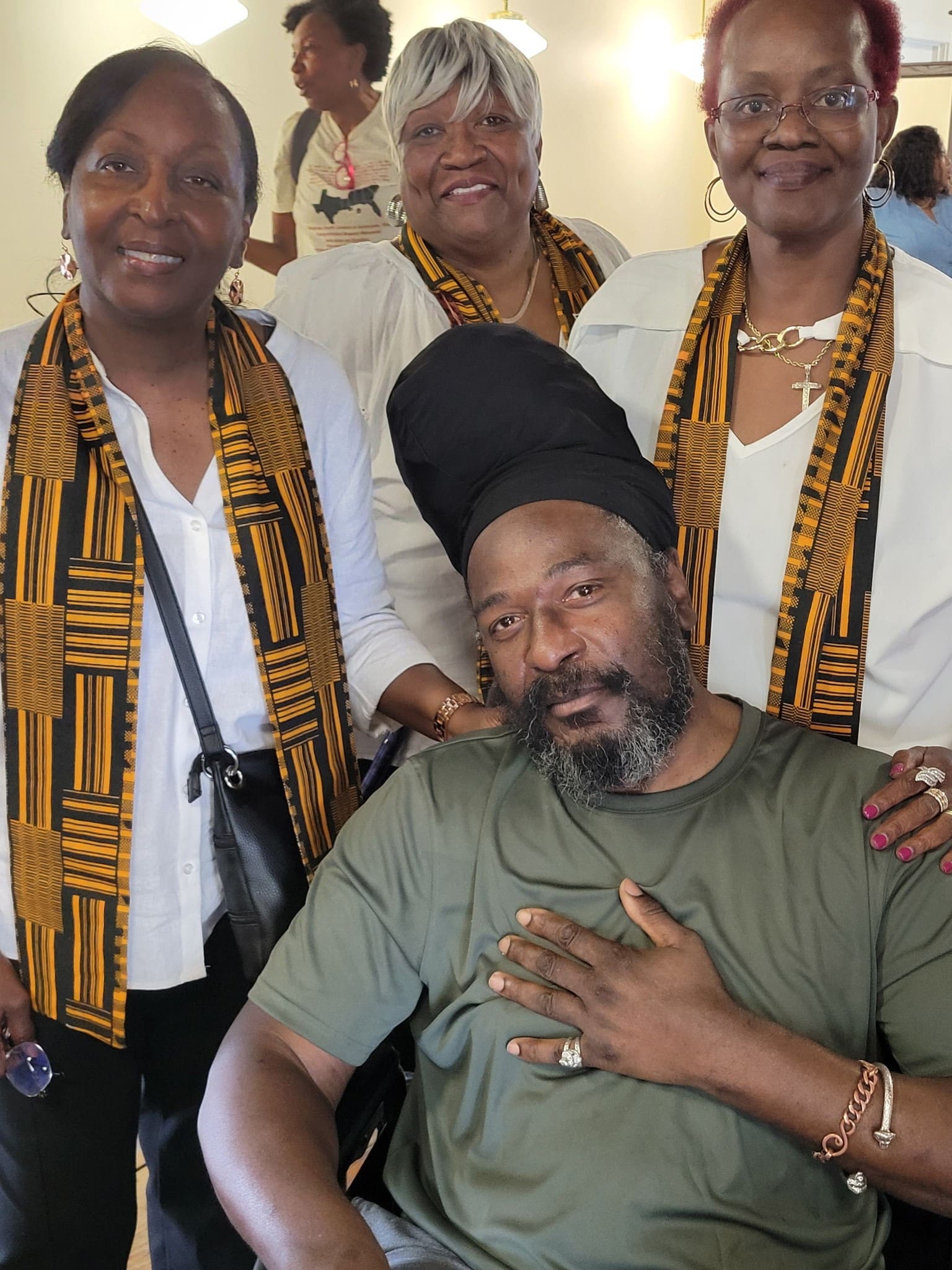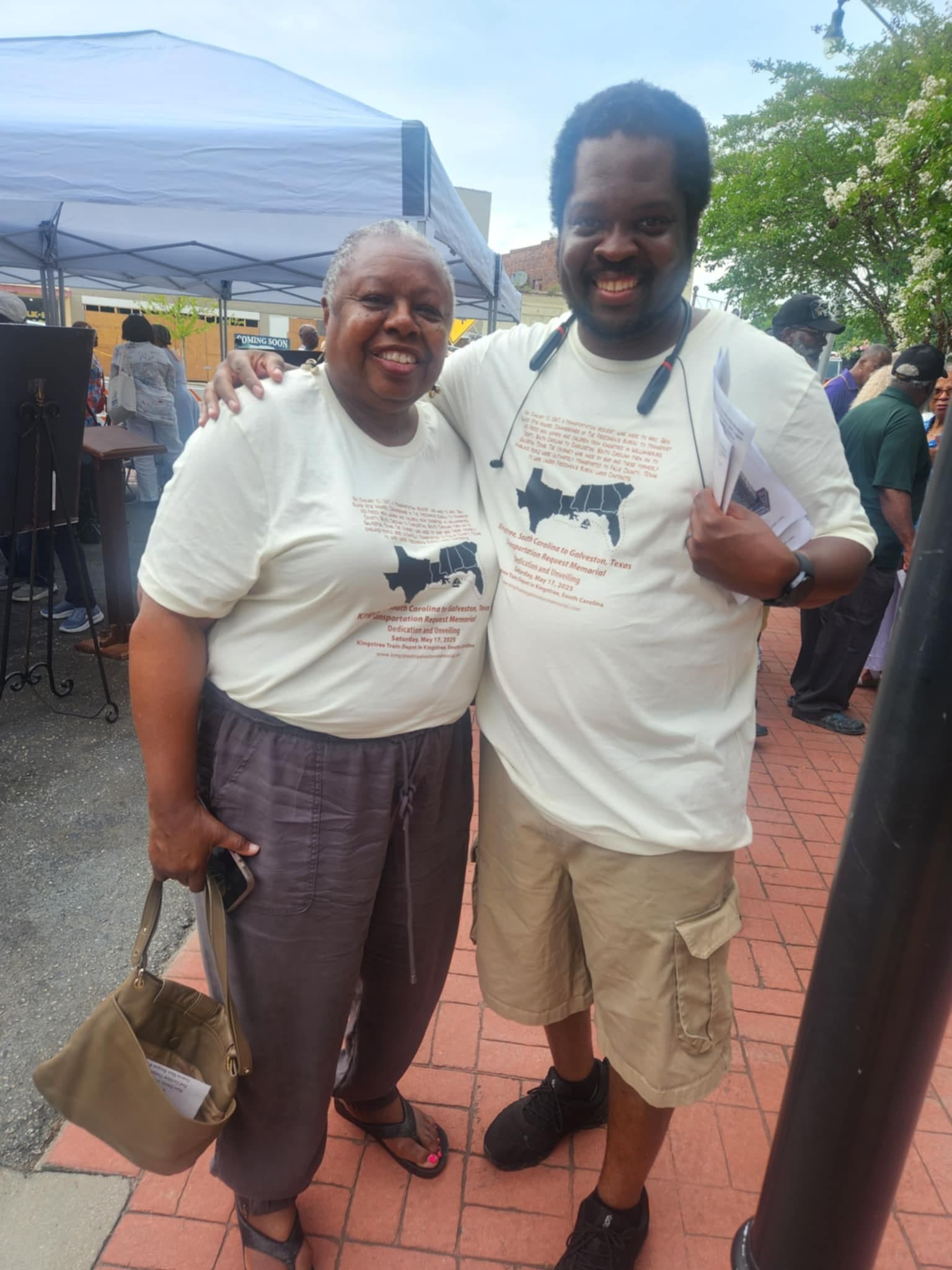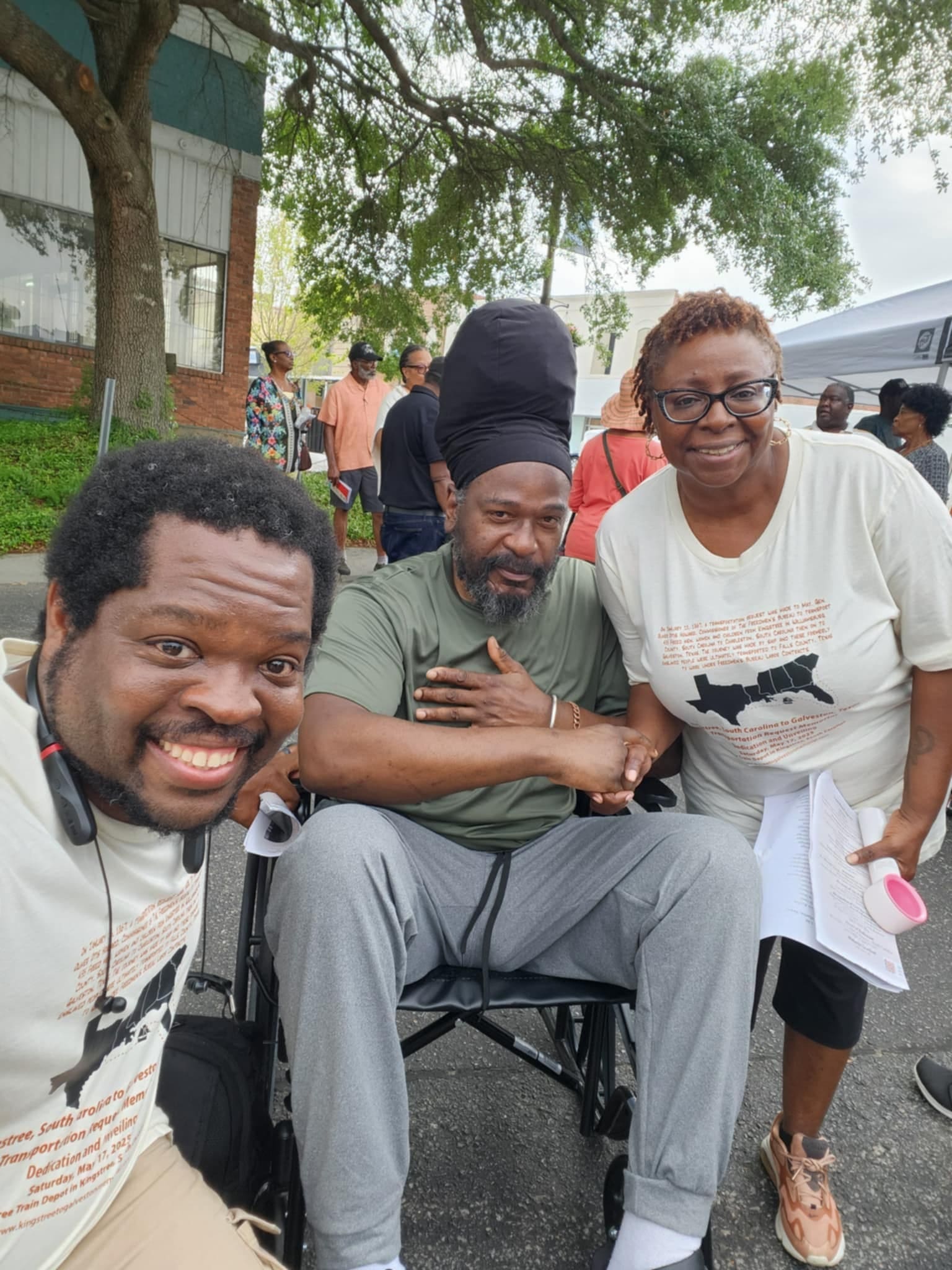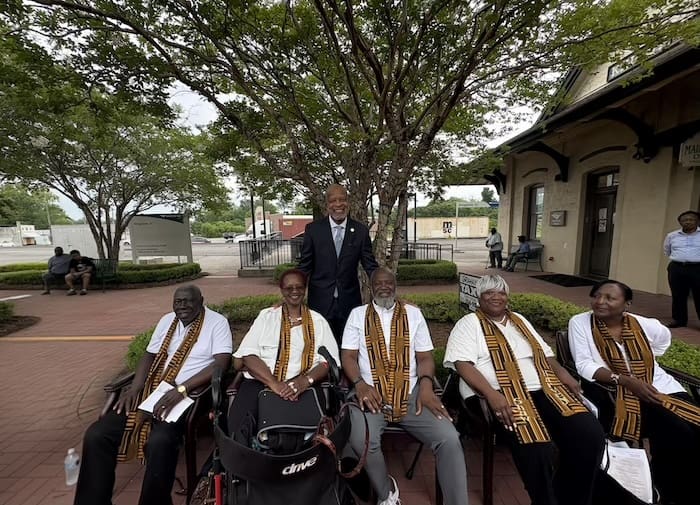Kingstree, SC → Galveston, TX Memorial Project
Honoring the 435 Freedmen & Families of the 1867 Transportation Request
In January 1867, 435 freed men, women, and children from Kingstree, South Carolina, petitioned the Freedmen’s Bureau for transportation to Galveston, Texas. Their journey reflects resilience, faith, and the search for opportunity beyond South Carolina.
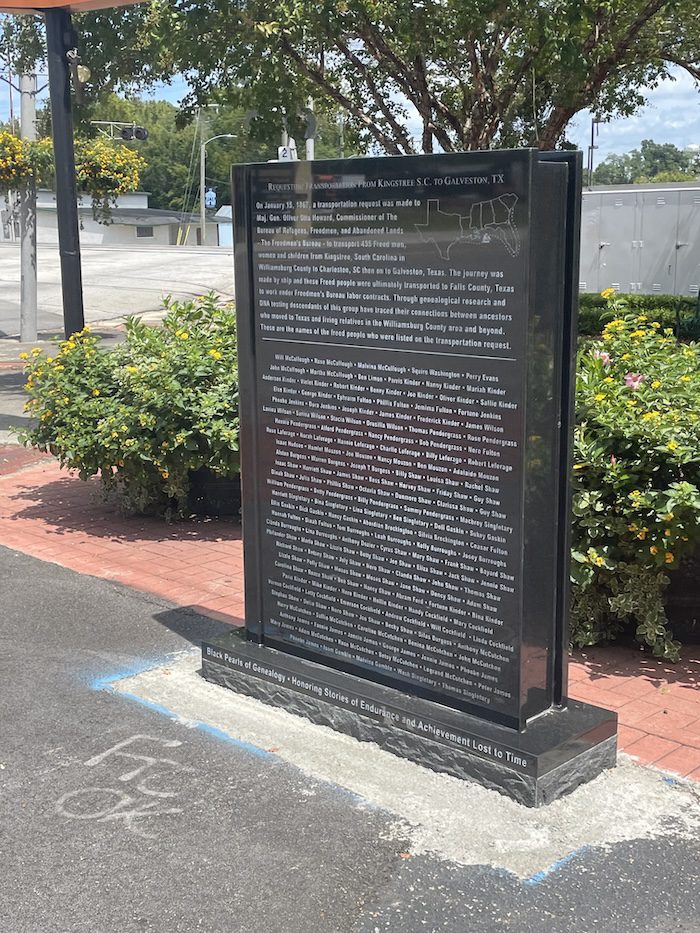
The Memorial Reads:
On January 15, 1867, a transportation request was made to Maj. Gen. Oliver Otis Howard, Commissioner of The Bureau of Refugees, Freedmen, and Abandoned Lands – The Freedmen’s Bureau – to transport 435 Freed men, women and children from Kingstree, South Carolina in Williamsburg County to Charleston, SC then on to Marlin, Falls County, Texas. The journey was made by ship and these Freed people were ultimately transported to Falls County, Texas to work under Freedmen’s Bureau labor contracts.
Through genealogical research and DNA testing, descendants of this group have traced their connections between ancestors who moved to Texas and living relatives in the Williamsburg County area and beyond. These are the names of the freed people who were listed on the transportation request.
The Kingstree Memorial preserves the petition and the memory of the 435 freed people who chose to relocate from South Carolina to Texas. It stands as the beginning of a story that continues with the ➡️ Marlin, TX Memorial Project.
Why the Kingstree to Galveston Memorial Matters
In Reconstruction South Carolina, freed people faced poverty, violence, and a lack of land ownership. The Kingstree petition represents their determination to claim agency over their futures.
This memorial tells the story of departure, the moment when these families made the courageous decision to seek a better life.
The Freedmen’s Bureau Transportation Request of January 15, 1867
On January 15, 1867, the Freedmen’s Bureau office in Kingstree, South Carolina, received a petition on behalf of 435 freed men, women, and children seeking transportation to Galveston, Texas. The request was approved under the supervision of Cornelius M. Summers, a Freedmen’s Bureau agent and recruiter tasked with relocating laborers to Texas.
This petition stands as one of the earliest documented cases of organized Black migration after emancipation. More than just a record, it is a testament to the determination of freed families to shape their own futures in the face of poverty, racial violence, and landlessness in South Carolina.
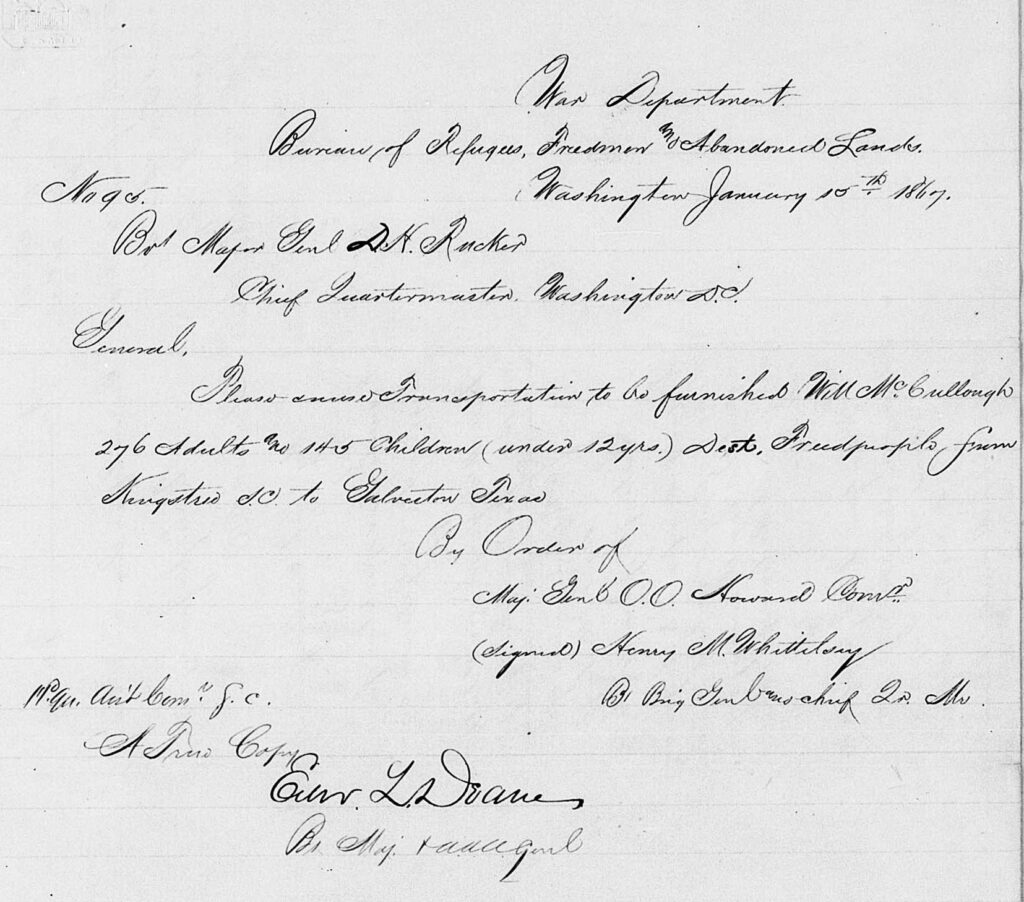
“The Freed Men, Women, and Children of Kingstree”
At the heart of the Kingstree story are the 435 names included in the petition. These men, women, and children are memorialized here to ensure they are remembered not only as numbers in a record, but as lives filled with dignity and purpose.
➡️ CTA: “If you recognize a name, share your family’s connection with us.”
Bureau's Transportation Request
Reading of Names on the Transportation Request
We gather not merely to recite names, but to speak the truth of a journey, one etched into the soul of our history. In January of 1867, just two years after the chains of bondage were broken by law but not yet by the world, 435 souls, formerly enslaved, now freemen and freewomen, set out from Kingstree, Williamsburg County, South Carolina, to Marlin, Falls County, Texas.
Their footsteps echoed the sound of courage, and their journey spanned not just miles but centuries of pain, prayer, and perseverance. They arrived, not just in Marlin, Falls County, Texas, but into a new chapter of their lives, into the fragile promise of freedom.
Reading the names aloud ensures that each person is remembered with honor and respect.
Timeline of the Journey
The journey was long and uncertain, but it symbolized hope for a new beginning.
Freedmen's Bureau Contract Signed in Kingstree, SC
Recruiters organized families for transport with promises of wages, rations, and housing. Leaving home meant risk and hope at once. Many carried only names and kinship ties, stepping into Reconstruction’s uncertain terms while insisting on paid labor and self-determination.
Jan 15, 1867
Rail to Charleston
Groups moved by rail under supervision to the port city. Conditions varied and schedules shifted. Bureau agents and contractors documented totals, tickets, and rations. The paper trail begins here—use it to confirm clusters of surnames and traveling companions.
Mid Jan 1867
Ship Adele to Galveston, TX
Hundreds crossed the Gulf together. Manifests and port ledgers captured tallies, dates, and crew. Though cramped and controlled, the voyage marked a threshold: from bondage’s past to a future not yet defined, with contracts ahead and choices still contested.
Jan 26, 1867
Arrived at Galveston, Texas and continued by rail to Marlin in Falls County.
From Galveston inland, trains carried workers toward cotton lands near Marlin. Contracts awaited, promising pay, rations, and quarters. Some terms proved unequal; others improved with negotiation. Communities began to form around work, worship, and shared survival.
Feb 7, 1867
Memorializing 435 Souls
Community leaders and descendants continue to honor the 435, ensuring their legacy lives on through memory, testimony, and reflection.
“Newspaper Coverage of the 435 Freedmen (1867)”
This piece captures how local memory and storytelling continue to preserve the lives of those who left Kingstree in 1867.

The News – Kingstree, SC, Wednesday, June4, 2025
My name is Sharon Styles. I am the great-granddaughter of Harvey Shaw and the great-great-granddaughter of Bess Shaw, two of the 435 names memorialized on the monument.
On Saturday, May 17, 2025, more than 100 people gathered at the Kingstree Amtrak Station to witness the unveiling of a monument dedicated to the 435 Freedmen who left Kingstree in January 1867, headed to Marlin, Falls County, Texas, in search of true freedom and better lives for themselves as well as their descendants.
The recently freed men, women, and children left Kingstree, traveled to Charleston, where they boarded the steamship Adele, sailed to Galveston, Texas, and then boarded a train to Marlin, Texas. Descendants of those Freedmen returned to Kingstree for the ceremony honoring their ancestors.
The beautiful, jet-black granite monument stands five feet tall and is engraved with the names of each individual listed on the Freedmen’s Bureau document, which was arranged (continue)
With Deep Appreciation
We extend our gratitude to Sharon Styles for her outstanding work in transcribing the names from the 1867 petition, and to Angela Shaw Ross, who carefully reviewed and organized them into family groupings. Together, their diligence has transformed a simple list of names into a legacy that restores identity and meaning to each individual.
This is only half the story. After leaving Kingstree, the 435 arrived in Galveston and built new lives in Falls County, Texas. Continue the journey:






